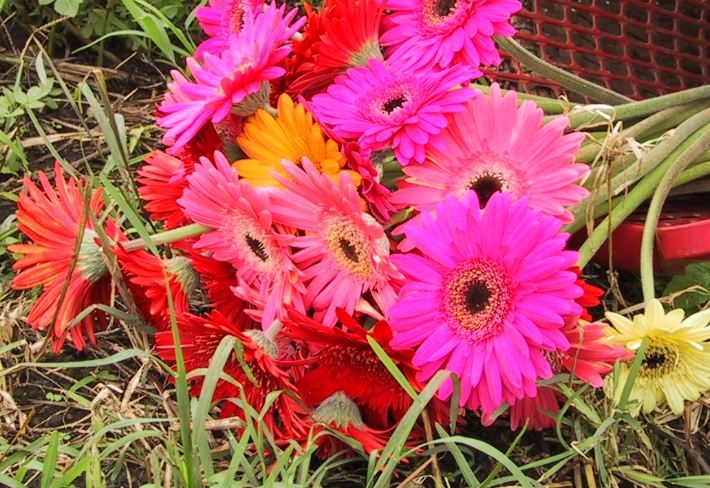A special Book Zone post for Valentine’s Day, celebrating the theme of love in our National Library of Australia Thai collection. All of the works featured here, and many more like them, are available for your interest, be it personal or for research.
The Thai concept of rak ‘love’ is more particular than in English; one can rak a person, a child or an animal, but you cannot rak your favourite food or going on vacation, although you can rak to do good or bad. In the books featured here we see the Thai concept of rak invoked in many ways, from the deeply romantic, to the modern, and as an expression of adoration for leaders and authority figures. The Thai Dictionary of the Royal Institute (1999) confirms this with its definition:
- р╕гр╕▒р╕Б: р╕бр╕╡р╕Др╕зр╕▓р╕бр╕Ьр╕╣р╕Бр╕Юр╕▒р╕Щр╕Фр╣Йр╕зр╕вр╕Др╕зр╕▓р╕бр╕лр╣Ир╕зр╕Зр╣Гр╕вр╣Ар╕Кр╣Ир╕Щр╕Юр╣Ир╕нр╣Бр╕бр╣Ир╕гр╕▒р╕Бр╕ер╕╣р╕Б р╕гр╕▒р╕Бр╕Кр╕▓р╕Хр╕┤ р╕гр╕▒р╕Бр╕Кр╕╖р╣Ир╕нр╣Ар╕кр╕╡р╕вр╕З …
(bounded with care such as the love of the parents, love of the nation, love of one’s fame…)
Yet the Royal Institute dictionary has not always covered the full scope of love in its definition. It was in 2004 that the Matichon Dictionary of the Thai Language extended the definition to include:
- Homosexuality [р╕гр╕▒р╕Бр╕гр╣Ир╕зр╕бр╣Ар╕Юр╕и] р╕гр╕▒р╕Бр╣Гр╕Др╕гр╣Ир╣Гр╕Щр╕Чр╕▓р╕Зр╣Ар╕Юр╕ир╣Гр╕Щр╕Др╕Щр╣Ар╕Юр╕ир╣Ар╕Фр╕╡р╕вр╕зр╕Бр╕▒р╕Щ, and
- Love triangle [р╕гр╕▒р╕Бр╕кр╕▓р╕бр╣Ар╕кр╣Йр╕▓] р╕Др╕зр╕▓р╕бр╕гр╕▒р╕Бр╕Вр╕нр╕Зр╕лр╕Нр╕┤р╕Зр╕лр╕Щр╕╢р╣Ир╕Зр╕Бр╕▒р╕Ър╕Кр╕▓р╕вр╕кр╕нр╕Зр╕Др╕Щр╕лр╕гр╕╖р╕нр╕Кр╕▓р╕вр╕лр╕Щр╕╢р╣Ир╕Зр╕Бр╕▒р╕Ър╕лр╕Нр╕┤р╕Зр╕кр╕нр╕Зр╕Др╕Щ
The Royal Institute has begun to catch up, and its 2009 supplement (р╕Юр╕Ир╕Щр╕▓р╕Щр╕╕р╕Бр╕гр╕бр╕Др╕│р╣Гр╕лр╕бр╣И р╣Ар╕ер╣Ир╕б 2 ) included:
- Cross sex love [р╕гр╕▒р╕Бр╣Др╕Вр╕зр╣Йр╣Ар╕Юр╕и] р╕Др╕зр╕▓р╕бр╕гр╕▒р╕Бр╕Вр╕нр╕Зр╕Чр╕нр╕бр╕Бр╕▒р╕Ъ р╕Ьр╕╣р╣Йр╕Кр╕▓р╕вр╕Чр╕╡р╣Ир╣Бр╕Ыр╕ер╕Зр╣Ар╕Ыр╣Зр╕Щр╕Ьр╕╣р╣Йр╕лр╕Нр╕┤р╕З (the love of ‘tom’ [i.e. tomboy] and a lady boy)
Love among the Royals
People are always fascinated by Royal love stories. The Thai royals of the 19th and early 20th centuries were not just public figures, but people with complex lives, families and relationships. We hold many books on this topic, revealing crucial insights into a society in transition
Unconventional novels/films on love/sex
Thai popular fiction is remarkably diverse, and occasionally very frank, on issues of love, sex, and personal development. Novels dealing with such issues began to appear from the 1960s and today many are made into films. But the Ministry of Culture does not always approve, and our collection holds a number of censored movies.
Love that motivates us
The following books are all real life stories; the first book is р╕гр╕▒р╕Бр╣Ар╕нр╕в, one of memorial volumes given to people who attended the funeral of р╕нр╕▓р╕Бр╕З (Akong). The second is a novelization, based on the life of General Prem, being his untold love story. The other two are about mothers who went to great lengths for their children.
Classic novels of passion
Novels featured here are from the 1930s to 1960s. It was a time of modernization in literature and culture generally, and we see some western influence in the books of the time. Strong characters, men and women, are driven by passion to commit extraordinary acts.
Love in folk traditions
The three covers are of great epic love stories from the North East, featuring heroism, unconditional loyalty and sacrifice. The last cover is a comic book version of a well known phi mae nak or ‘ghost’ story in which the spirit of the departed woman stays to protect her family.
Passion in Politics and Patriotism
Nothing arouses passions like politics, especially politics of patriotism and nationalism.
The first book here is an academic study whose title translates as ‘Offspring of China love the nation (Thailand)’ referring to the immigrant Chinese. This patriotic Thais of Chinese descent play a major role in the political life of the country. This is especially highlighted in the other two books, which relate to the mass love for former PM Taksin and the Yellow leader Sonthi.
[This post is provided by the National Library of Australia as part of our BookZone 2.0 feature. For further information please contact: sviravong@nla.gov.au] Facebook
Facebook  Twitter
Twitter  Soundcloud
Soundcloud  Youtube
Youtube  Rss
Rss 





